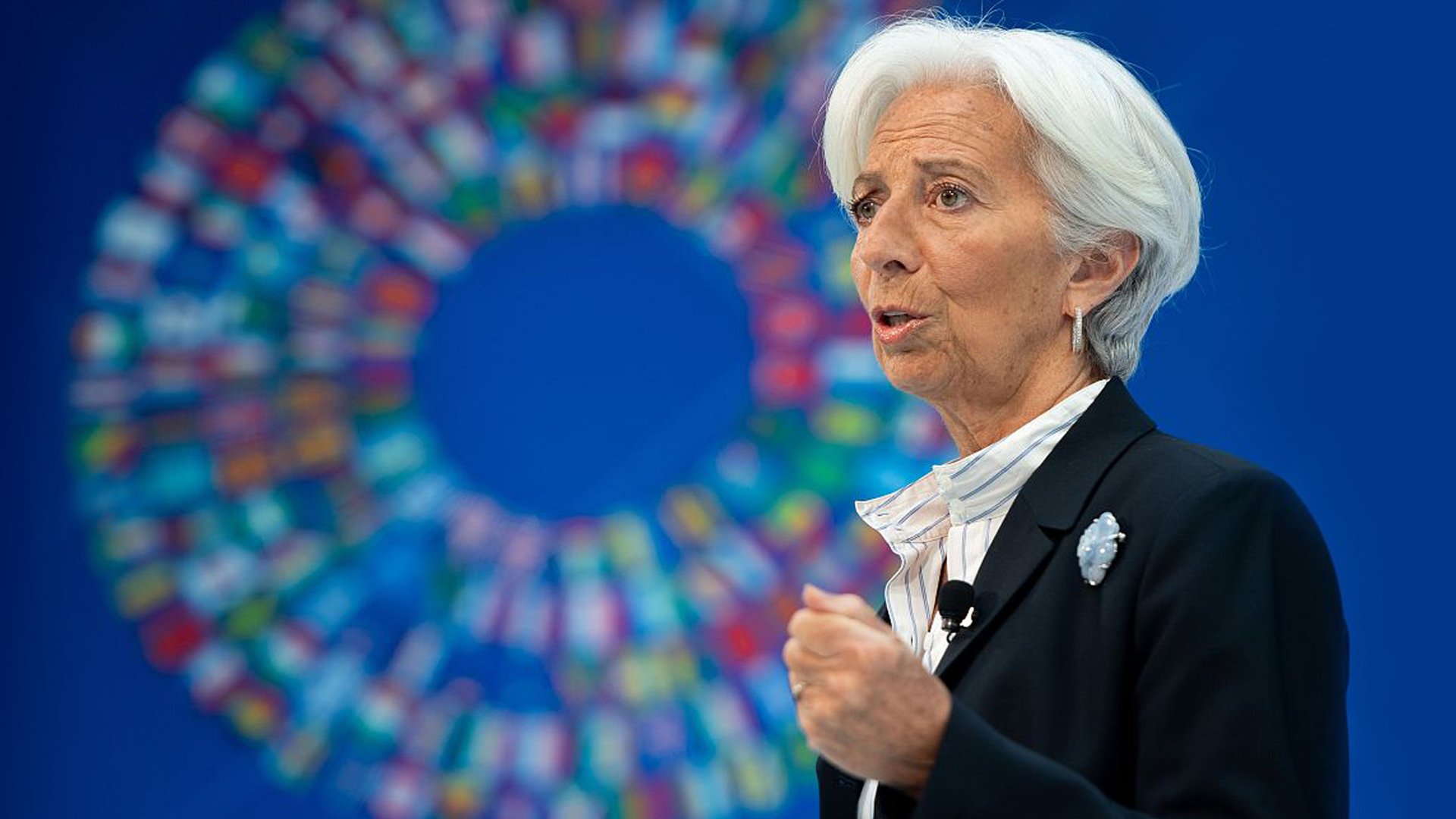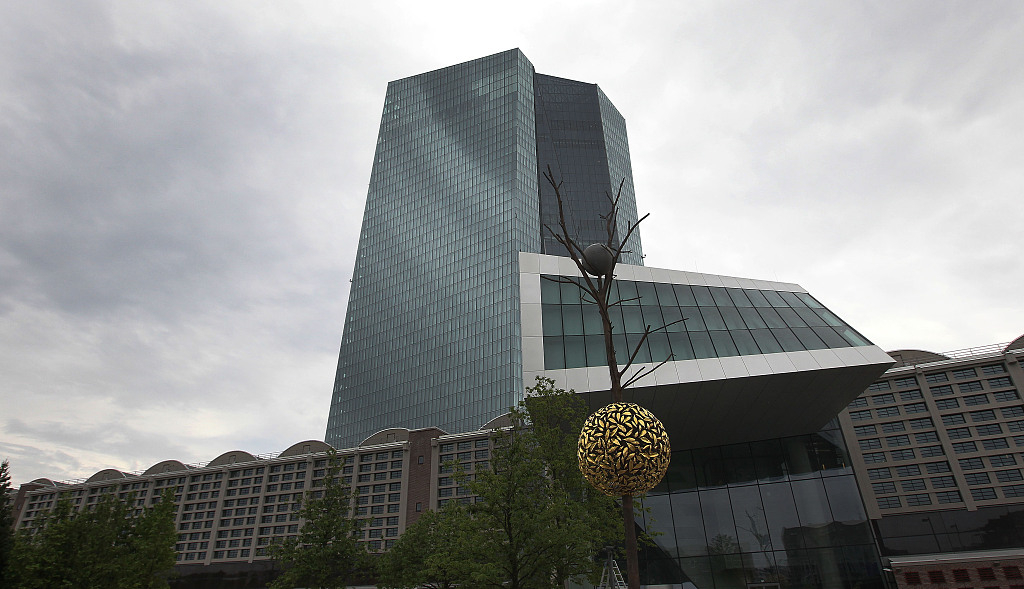
IMF Managing Director Christine Lagarde speaks during a meeting at International Monetary Fund Headquarters in Washington, DC, April 10, 2019. /VCG Photo
IMF Managing Director Christine Lagarde speaks during a meeting at International Monetary Fund Headquarters in Washington, DC, April 10, 2019. /VCG Photo
Editor's note: Richard Fairchild is an associate professor at the Finance of School of Management, University of Bath. The article reflects the author's opinions, and not necessarily those of CGTN.
On November 1 the European Central Bank (ECB) will have a new leader. Christine Lagarde leaves her role as head of IMF to take over from Italian economist Mario Draghi as head of ECB. What can we expect from her? What will she bring to the role?
Paris-born Christine Lagarde is a stylish fashionable lady, who is well-educated, and speaks English fluently. She has been described as a "rock-star" politician. She inherits many challenges from Draghi.
As head of ECB, Draghi rescued the euro in a time of crisis for the currency. Furthermore, Draghi has been steering the Eurozone through the challenges of the financial crisis, the Brexit saga, and the global fallout from the ongoing China-U.S. trade war.
Will Lagarde do anything differently? Probably not, in terms of policy. Many commentators believe that it will be business as usual, as she continues with the massive quantitative-easing (QE) program that Draghi embarked upon as a response to the financial crisis. What will be interesting to observe though, is how her different personality and capabilities may come into play here.
On the negative side, unlike Draghi, Lagarde is not an economist, an expert in finance, or a technocrat. It has been said that putting politicians in charge of institutions such as ECB will not work, and Lagarde is, first and foremost, a politician.
Given her lack of expertise in economics, she will surround herself with ECB experts in the field to assist and advise her. What she does bring, as evidenced by her roles, first as France's first female finance minister (at the height of the financial crisis), and then as head of the IMF, is great negotiating skills, in very complex situations, with multiple conflicting parties involved.
Her great negotiating skills were in evidence when she was at the IMF during the Greek financial crisis. The so-called troika of Lagarde's IMF, the European Union, and the ECB, determined the bailout terms for Athens. Lagarde personally listened very carefully to the Greek side, and negotiated skillfully.

The headquarters of the European Central Bank (ECB) in Frankfurt, Germany, July 21, 2016. /VCG Photo
The headquarters of the European Central Bank (ECB) in Frankfurt, Germany, July 21, 2016. /VCG Photo
Now at the ECB, the success of QE will be critically tied to the cooperation of the 27 EU members in terms of their accompanying fiscal policies. In terms of the euro itself, the Bloomberg Business website notes that "she will oversee the world's second biggest currency in a diverse, 19 nation economy for which a single monetary policy sometimes seems an ill-fit."
One aspect that she believes she brings to the table is her gender: she argues that women can have a huge positive effect in the business world as a counterbalance to male-dominated machismo in business and political-settings.
Much academic research demonstrates that male-dominated business decisions are often characterized by destructive overconfidence, excessive risk-taking, decisions taken too hastily, based on "gut-feel," without proper forethought.
This same research shows that females bring a touch of risk-aversion, caution, careful analysis, and ultimately well-thought out and carefully planned decisions. Lagarde recognizes this, and has even said that if Lehman Brothers had been Lehman Sisters, the bank may not have collapsed.
One challenge she faces, as new head of ECB, is the global knock-on effects of the continuing trade wars between U.S. and China. Lagarde considers these trade wars as a continuing threat to the global economy.
According to Global Market Insider website, Lagarde has bemoaned the China-U.S. trade war as "a bid dark cloud" and the "biggest hurdle" for global growth. This makes it all the more important for Lagarde to negotiate well within the EU, in her role at the ECB, in order to keep the EU strong and protected and immune from the effects of the China-U.S. trade wars.
She is also keen to head off any prospect of trade-wars between U.S. and EU, and a strong EU will help in this endeavor. In spite of her lack of economics expertise, her personality and negotiating skills should serve her, the ECB, and the EU, well in this endeavor.
(If you want to contribute and have specific expertise, please contact us at opinions@cgtn.com)